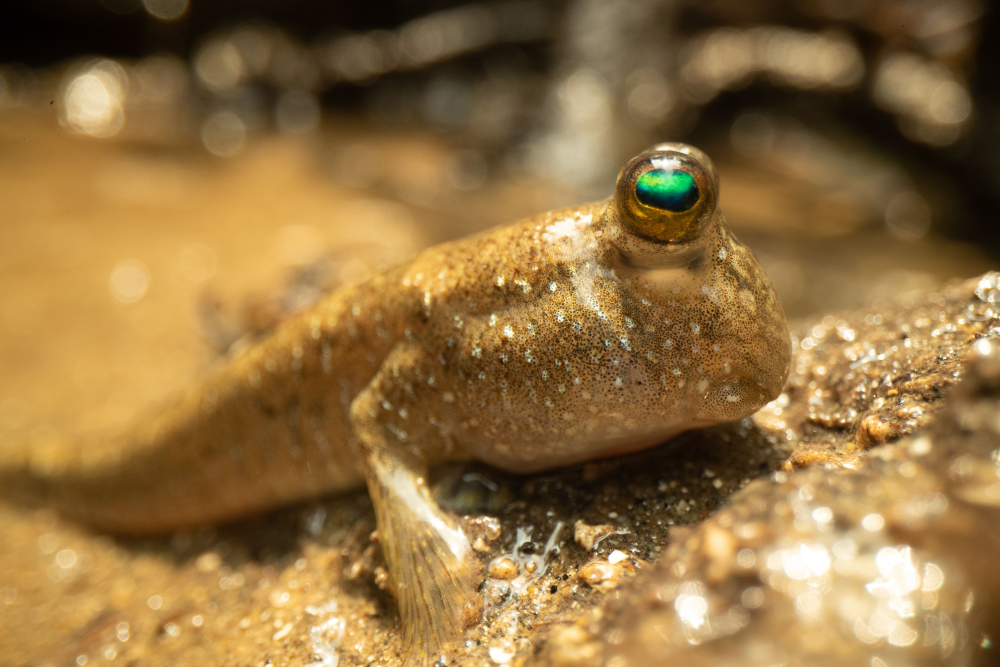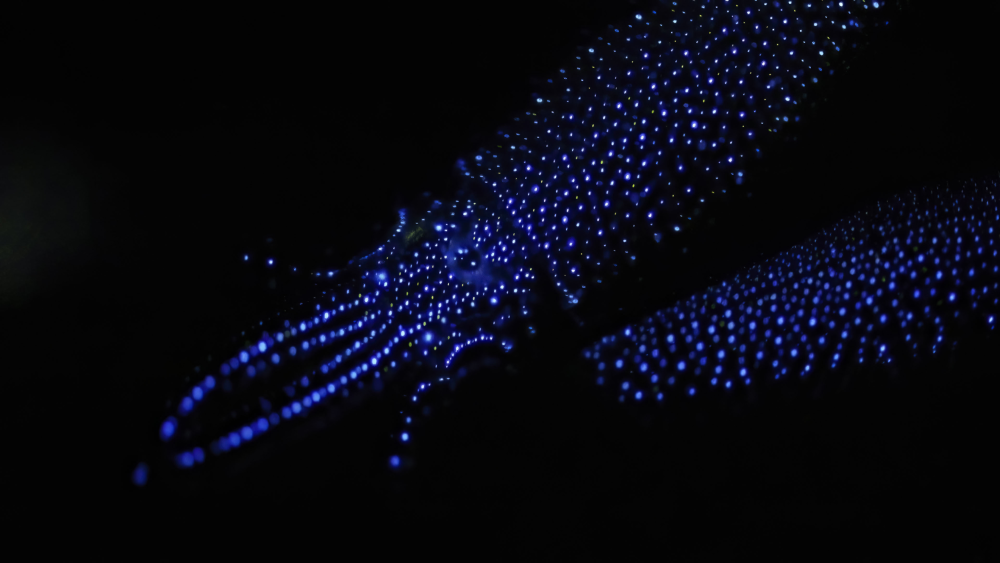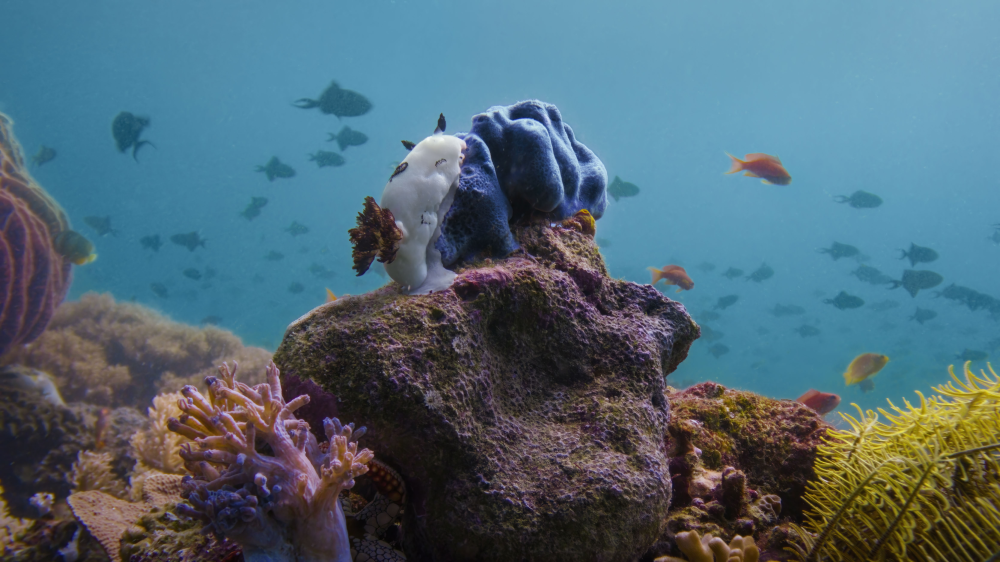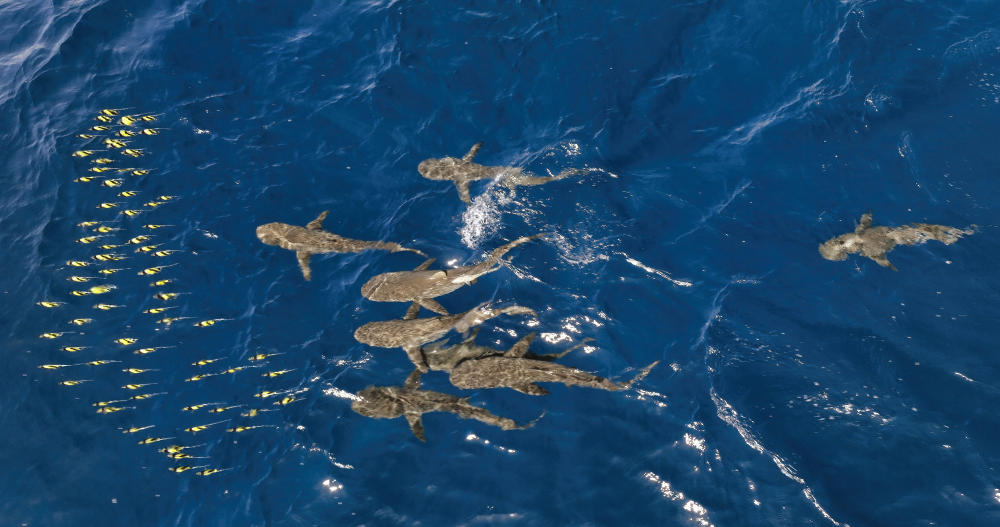If you find yourself facing down the barrel of winter, the good news is you can escape to Asia every Sunday for the next seven weeks, all without leaving your living room. The BBC and Sir David Attenborough are providing some eye-balm in ultra-high-definition 4K with Asia, a seven-part series that will take you from beneath the waves to above the clouds as it explores the curious wildlife and natural wonders to be found across Earth’s largest continent.
The project took four years to complete and in that time the various teams were able to capture some remarkable world-firsts and bizarre animal behaviors, from the “kiss chase” antics of Nepal’s rhinos to thieving elephants in Sri Lanka, and a collaboration between fish and sea snakes in the Western Pacific.
They also covered some serious terrain, including the Gobi Desert, Borneo’s jungles, and Siberia’s polar wilderness. Week one, however, is taking us Beneath The Waves. Asia has more coastline than any other continent at over 161,000 kilometers (100,000 miles) long, and is home to some of the most abundant coral reefs on Earth. It’s perhaps unsurprising, then, that there are some seriously weird animals to be found there.

A very talented blob of a fish.
Image credit: BBC/BBC Studios/Ben Harris
The first to catch IFLScience’s eye was a fish that could climb a tree known as the dusky-gilled mudskipper (Periophthalmus variabilis). These animals can most commonly be found sitting on mud in the mangroves of Ujung Kulon National Park in Java, Indonesia, but when they decide it’s time to move, they get around in some really bizarre ways.
They have an adapted fin that means they can climb vertical surfaces, including tree trunks and rock faces. These mudskippers can also water-hop, which was an entirely new kind of fish locomotion when it was reported in April 2020 – though we can understand if you missed it at the time because of, well, *gestures at everything*.

These glowing squid venture up from the depths to mate, and then swiftly pop their clogs.
Image credit: BBC One, Asia
In the Sea Of Japan, we meet another curious critter, the firefly squid (Watasenia scintillans). When it’s time to mate, these squid embark on a one-way journey up from the deep so they can spawn in the shallows. They only live for 12 months so once the deed is done, so are they, and their glowing bodies wash up on the shore.
You’ll also no doubt be charmed by the Western Pacific’s sea bunny (Jorunna funebris). Don’t be fooled by the adorable name of this tiny sea slug, as it packs a punch thanks to a diet of poisonous blue sponges. The team used “quad pods” to stabilize their cameras as they worked in unpredictable waters, enabling them to capture intricate details like the sea bunny’s “ears”, which are actually chemical sensors.

The sea bunny gets its superpower from a diet of poisonous blue sponges.
Image credit: BBC Studios/Stefan Hunt
An apparent favorite of Sir David Attenborough himself is a world-first clip of grey reef sharks hunting Moorish idols, which executive producer Roger Webb describes as “little characters with their pursed lips. They remind me of some of the fish in Finding Nemo. They are just instantly charismatic.”
“Then the sharks are also remarkable. The way they pursue the Moorish idols en masse in this frenzy is amazing. The energy and the music and, of course, Sir David’s narration combine with that to create a very powerful and engaging sequence. It is an incredible story, and it really sets us up on the right path for the series.”

Moorish idols swim out to sea to spawn, but chasing grey reef sharks are hot on their tails.
Image credit: BBC One, Asia
Sound good? You can lose yourself in Asia on BBC One on Sunday, November 3, with all episodes available as a seven-part box set on BBC iPlayer on the same day.
Source Link: Fish That Climb Trees, Firefly Squid, And Poisonous Sea Bunnies: Welcome To "Asia"